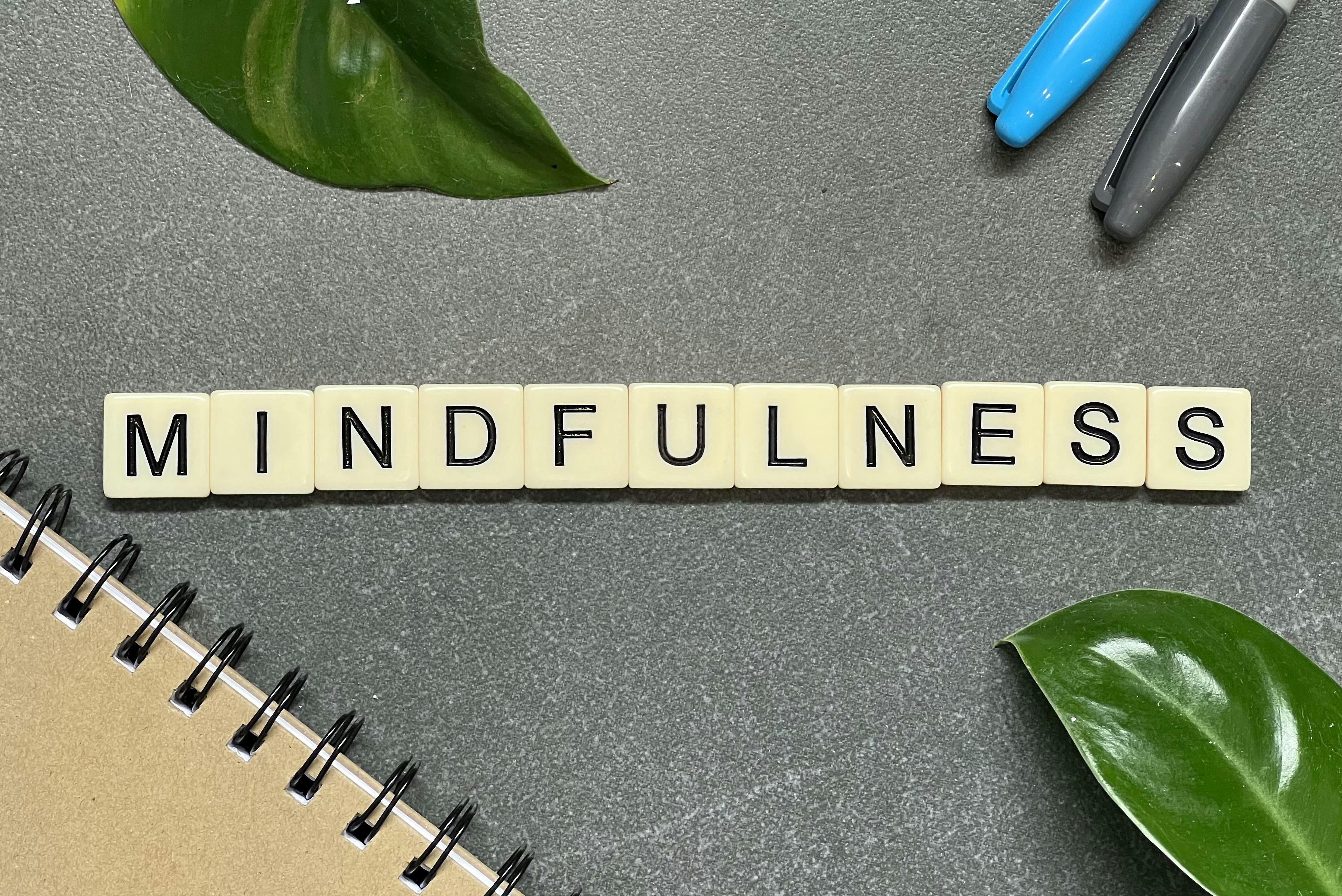Introduction: The Wild Journey of Traveling
Traveling abroad represents an exhilarating adventure, marked by the promise of exploration and the thrill of immersing oneself in diverse cultural landscapes. Each journey offers a unique opportunity to experience new traditions, openness to different lifestyles, and an enriched understanding of the world. However, this excitement is often accompanied by challenges, such as cultural adaptation and the unforeseen stressors that can arise in unfamiliar environments. Navigating these contrasts is essential in ensuring that the travel experience is enjoyable rather than overwhelming.

The act of exploring new cultures inevitably leads to a variety of emotions, including joy, curiosity, and sometimes, feelings of anxiety and homesickness. As travelers step outside their comfort zones, they are not just corralled by the allure of new sights but also by the complexities inherent in different social norms and expectations. Adapting to these changes can spark stress and uncertainty, akin to the pressures of daily life. Thus, addressing mental well-being becomes crucial while traversing foreign territories.
Understanding the intimate relationship between travel and mental health can significantly affect how we approach our journeys. In addition to logistical planning, such as booking flights and accommodations, attention should also be given to our mental state during travel. Strategies for managing stress and anxiety can facilitate a smoother transition into new cultural experiences. Recognizing that mental health is just as important as crafting a travel itinerary prepares individuals for the inevitable challenges of cross-cultural exploration. Embracing this holistic approach allows travelers to cultivate enjoyable memories while minimizing the potential negative effects of cultural displacement.
Understanding Mindfulness: A Tool for Mental Wellness
Mindfulness is a mental practice that fosters an enhanced awareness of the present moment, promoting a state of mental clarity and emotional regulation. This technique encourages individuals to be fully engaged with their thoughts, feelings, and sensory experiences without judgment. For travelers encountering the complexities of new cultural environments, mindfulness serves as a vital tool for mental wellness, enabling them to navigate stress and anxiety more effectively. By cultivating mindfulness, travelers can manage overwhelming sensations and foster a more enriching experience during their journeys.
The benefits of practicing mindfulness are profound, particularly when facing the stressors that can arise from unfamiliar settings. Engaging in mindfulness helps individuals maintain a sense of grounding amidst chaos. Breathing exercises, for instance, can be easily integrated into travel routines. When feeling overwhelmed by new experiences, travelers can take a moment to focus on their breathing. Inhale deeply for a count of four, holding for a count of four, and exhaling for another count of four. This simple technique can diminish anxiety and promote a greater sense of calm, allowing individuals to fully immerse themselves in the travel experience.
Additionally, meditation is an effective mindfulness practice that travelers can apply during their trips. Even short sessions of meditation—whether guided or self-led—can assist in clearing mental clutter and fostering reflective contemplation. Finding a quiet corner in a bustling airport or a serene park can offer the perfect backdrop for meditation. Moreover, encouraging oneself to be present in each moment enhances the travel experience by amplifying appreciation for the new environment, cultures, and connections made along the journey.
Through the continual practice of mindfulness, travelers can not only improve their mental health but also enrich their adventures abroad, transforming potential chaos into mindful exploration.
Cultural Shock: Emotional Responses to New Environments
Cultural shock is a common experience for travelers and expatriates, defined as the feelings of disorientation and anxiety that arise when individuals are exposed to a new cultural environment. This phenomenon typically unfolds through several phases, including the honeymoon phase, negotiation phase, adjustment phase, and mastery phase. Understanding these phases can help individuals navigate their emotional responses more effectively.
The initial stage, often referred to as the honeymoon phase, occurs when travelers first arrive in a new culture. During this time, individuals may feel excitement and fascination with their surroundings. However, as they begin to interact more deeply with the local culture, the negotiation phase sets in, revealing challenges such as language barriers, different social norms, or unfamiliar customs. This is often when feelings of anxiety and frustration surface, as travelers may struggle to adapt to the sudden changes.
As the initial enthusiasm wanes, individuals may experience homesickness and a sense of loss, leading to the adjustment phase. It is during this phase that they start to find ways to cope with the cultural differences and gradually acclimate to their new environment. Acceptance evolves as they begin to understand and appreciate cultural nuances, helping to mitigate the anxiety that emerged earlier. Ultimately, the mastery phase, where individuals feel comfortable and integrated into their new surroundings, is where the journey concludes on a positive note.
Recognizing symptoms of cultural shock such as disorientation, anxiety, and homesickness is pivotal. By acknowledging these feelings, travelers can adopt mindfulness techniques, seek support, and actively engage with their environment. Managing these emotional responses is not only crucial for personal well-being but also for enhancing the overall travel experience. Becoming aware of the emotional landscape influenced by culture shock allows individuals to cultivate resilience and adaptability as they explore new cultural territories.
Practical Strategies for Mindfulness While Traveling
Traveling abroad often exposes individuals to new experiences, cultures, and environments, which can be both exhilarating and overwhelming. To foster mental health and manage stress in these unfamiliar settings, incorporating mindfulness practices into daily routines is essential. One effective strategy is mindful walking, where travelers take slow, purposeful strides while focusing on their surroundings. This practice not only encourages individuals to connect with the environment but also helps mitigate feelings of anxiety that can arise from the constant stimulation of new sights and sounds.

Journaling is another valuable tool for enhancing mindfulness during travels. By taking time each day to reflect on experiences, emotions, and thoughts, travelers can cultivate a deeper understanding of their journey. Journaling serves as a mental unloading space, allowing travelers to process their feelings. It can also be a form of gratitude practice, as writers document positive encounters or new lessons learned from the culture they are experiencing. Whether it is through sketching, writing, or even capturing memorable quotes, your journal can act as a personal artifact of your adventures.
Engaging in local mindfulness practices is encouraged as a means to immerse oneself in the culture while promoting well-being. For instance, participating in guided meditation classes, yoga sessions on the beach, or traditional healing practices can provide unique opportunities to connect with both the locale and oneself. Reserving specific times each day for mindfulness activities, such as meditation, breathwork, or simply pausing to observe the environment, can also create a routine. Establishing this practice not only helps maintain balance but fosters an appreciation for the journey, enabling travelers to savor each moment while navigating new cultural landscapes.
Building Social Connections Abroad: A Mental Health Boost
When individuals embark on their travels, they often encounter new cultural environments that may initially induce feelings of stress and anxiety. One effective method to alleviate these feelings is to actively build social connections during their journey. Engaging with locals and fellow travelers can play a pivotal role in enhancing mental well-being, as it offers a sense of community and belonging. Furthermore, social interactions help mitigate feelings of loneliness that may arise when one is away from their familiar surroundings.
Initiating conversations in a new culture can be daunting, yet it is a rewarding experience that fosters interpersonal connections. A friendly smile, a simple greeting, or a question about local customs can serve as an excellent starting point. Many travelers find that using technology, such as language translation apps or social media platforms, can make communication easier. These tools can bridge language barriers, allowing for richer interactions that lead to friendships and shared experiences. Participating in guided tours or group activities also creates opportunities for meeting like-minded individuals who share similar interests.

Moreover, joining community activities, such as workshops or cultural classes, provides a structured environment to interact with others. This not only reinforces social skills but also fosters a deeper understanding of the local culture. By engaging with residents and fellow travelers, individuals cultivate a support network, which can significantly enhance their overall travel experience. Strong social connections contribute to reduced stress levels and improved mental health, transforming what could be an isolating experience into one that is deeply fulfilling and enjoyable.
In closing, fostering social connections while traveling abroad is paramount for supporting mental health. By embracing new friendships and engaging meaningfully with others, travelers can enhance their emotional resilience, making their journey not only enjoyable but also mentally enriching.
Recognizing and Managing Anxiety Triggers Abroad
Traveling to new destinations often brings about excitement, but it may also evoke feelings of anxiety, especially in unfamiliar cultural environments. Recognizing and managing anxiety triggers becomes essential for a pleasant travel experience. Common triggers include language barriers, unfamiliar customs, and differences in social norms. Understanding these factors can help travelers prepare psychologically and emotionally for their journeys.
Language barriers often pose significant challenges, leading to feelings of isolation and frustration. The inability to communicate effectively may heighten anxiety, making simple transactions or interactions feel daunting. To mitigate this, travelers can learn basic phrases of the destination’s language before arrival, fostering confidence and facilitating smoother interactions. Additionally, utilizing translation apps can serve as a practical tool in overcoming communication gaps.
Another prevalent source of anxiety is unfamiliar customs and cultural practices. Travelers may find themselves in situations where local etiquette differs significantly from their own, potentially leading to unintentional faux pas. To alleviate this anxiety trigger, thorough cultural research ahead of the trip is beneficial. Understanding the customs relating to greetings, dining, and social interactions can help in navigating these new environments with greater ease.
Moreover, exposure therapy can be an effective method for managing anxiety triggers while traveling. Gradually exposing oneself to new cultural situations can build familiarity and reduce apprehension. For instance, stepping out of comfort zones by trying local cuisine or engaging in community activities can enhance cultural appreciation while addressing anxiety.
It is also crucial to establish support systems during travel. Connecting with fellow travelers, local guides, or even online communities can provide reassurance and insight into managing anxiety while abroad. These support systems not only offer shared experiences but also create a sense of belonging in unfamiliar surroundings.
Self-Care Practices on the Road
Traveling abroad presents an exciting opportunity for exploration and growth; however, it can also introduce stress and anxiety due to new cultural environments. To navigate these challenges effectively, it becomes essential to prioritize self-care practices during your journey. Maintaining a healthy diet is one of the cornerstone strategies for managing stress. By choosing nutritious food options, travelers can not only maintain their energy levels but also positively influence their mood. Incorporating local healthy cuisines can enhance the experience and contribute to well-being.
In addition to food, regular exercise serves as a powerful tool to combat stress and anxiety. Engaging in physical activities such as hiking, jogging, or participating in local fitness classes can allow travelers to connect with their surroundings while benefiting their mental health. Even short sessions of stretching or mindfulness exercises can help restore focus and alleviate tension accumulated during the day’s exploration.
Equally crucial is ensuring adequate rest. Travel schedules can often become hectic, leaving little time for proper sleep. Travelers should make it a priority to get sufficient rest to sustain both physical and mental resilience. Establishing a bedtime routine, wherever they may be, can signal the body to unwind and prepare for sleep, fostering better overall well-being.
Creating a self-care toolkit tailored to travel plans can be markedly beneficial. This toolkit may include items such as herbal teas to sooth anxiety, guided meditation apps for moments of reflection, or a journal for documenting thoughts and feelings. Such personalized resources empower travelers to take charge of their mental health even in unfamiliar territories. By incorporating these self-care practices on the road, individuals can cultivate a sense of balance and adaptability, ultimately enhancing their travel experience.
Mental Health Resources: Seeking Help When Needed
Traveling abroad can be an exhilarating experience that exposes individuals to new cultures, foods, and languages. However, the stress and anxiety associated with navigating foreign environments can sometimes become overwhelming. It is essential for travelers to be aware of mental health resources available to them in different countries. By actively seeking help when needed, travelers can effectively manage their mental health while abroad.
One crucial resource for travelers is the local counseling services. Most cities around the world offer access to licensed mental health professionals who can help travelers cope with feelings of stress or anxiety. Researching and identifying these services prior to departure can be beneficial. Travel websites and expat forums often provide valuable information on reputable therapists and counselors in specific regions.

Additionally, support groups are a valuable resource for individuals dealing with similar issues. Many countries have established support groups that cater to various demographics, including expatriates and international travelers. Websites like Meetup and Facebook can also be helpful in locating local gatherings where individuals can share their experiences in a supportive environment. Connecting with others experiencing similar challenges can alleviate feelings of isolation and provide comfort during difficult times.
Helplines are another vital resource that travelers should keep in mind. Numerous countries offer mental health helplines, often available in multiple languages. This can be particularly beneficial for travelers who may feel uncomfortable discussing their feelings in a foreign language. Quick access to a trained professional via a phone call can provide immediate support for those facing acute anxiety or stress.
In conclusion, understanding and utilizing available mental health resources while traveling is paramount. Seeking help through local counseling, support groups, and helplines can significantly improve the travel experience, allowing individuals to embrace their journeys fully while maintaining their mental well-being.
Conclusion: Embracing the Journey with Mindfulness
Traveling abroad can be a transformative experience, filled with opportunities for personal growth and cultural enrichment. However, the stress and anxiety that often accompany new environments can undermine this enriching journey. Through the application of mindfulness techniques, travelers can better navigate these challenges, entering unfamiliar territories with a sense of calm and presence. By focusing on the current moment, individuals can alleviate worries about the unknown and embrace the diversity of experiences that travel offers.
Practicing mindfulness helps in managing stress effectively. As we explored, this can involve simple techniques such as mindful breathing, meditation, or even engaging in local activities with full awareness. The integration of mindfulness into daily routines not only fosters a positive mental state but also enhances the travel experience itself. When one is present and observant, the beauty and complexity of different cultures become more vivid, enriching the journey.
It’s essential to prioritize mental health while traveling; after all, travel is not merely about the destination but the journey itself. By implementing mindfulness strategies, travelers can create pockets of peace amidst the chaos, allowing them to reflect and recharge. This approach not only mitigates anxiety but fosters a greater appreciation for the diverse environments encountered. Ultimately, embracing mindfulness while traveling encourages individuals to cultivate resilience and a deeper connection to their experiences. As you venture into new cultural realms, remember that the journey is as important as the arrival, and that your mental well-being deserves attention throughout your travels.



